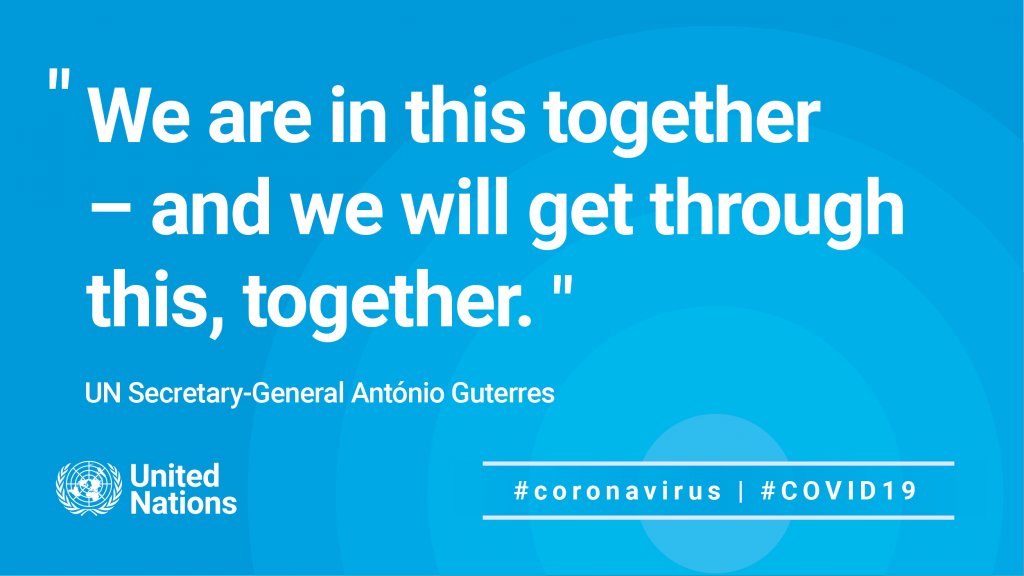Leo Casiple
The localized crisis causes distressing discord to a community. Widespread catastrophe creates agonizing chaos in any region. If not managed carefully, long-term chaos will knock the wind out of our sails and destroy national cohesion.

Noble response to the novel COVID-19.
Public administrators, police officers, firefighters, paramedics, medical staff, sanitation workers, long-haul truckers, local delivery drivers, gas station attendants, food industry specialists, and other essential members of the industry are to be commended for their intrepid efforts. Despite the threat of infection and drawn-out absence from their families, they bravely serve their communities with intense focus and undying adherence to their professional oath. Most have been working for weeks without a break. At this pace, no human can effectively sustain quality outputs of labor.
Without a much-needed break, essential employees will become less effective. The more they toil without sleep, the more mistakes they will make. An increase in the number of mistakes will erode trust within teams and decrease organizational effectiveness. Observable missteps and miscommunication will ultimately lead to a loss of public confidence.
When at peace, build teams, cross-train, and practice often.
During tranquil periods, government agencies establish formal relationships amongst each other to deconflict procedural issues. Through periodic inter-agency training, the partners exercise their unique capabilities using familiar, short-duration scenarios. The controlled environment is where operational maneuvers are tested and lines of authority are clarified. More importantly, the interaction is where bonds are strengthened, familiarity is increased, and commitment to the group is solidified. When a crisis develops, the government can quickly mobilize the ad hoc teams to confront any problem. If the issue is short-term and familiar, success is immediately attained, the provisional team is quickly disbanded, and everyone returns to the routine of everyday living.
Complications when in uncharted territory.
What happens when the situation is unfamiliar, novel, and long-term? What if ad hoc team members are lost to a pandemic, and new faces are thrust into the folds of the team? What will crop up when team members begin losing family members to the crisis? How will the potential loss of income, depletion of savings, forfeiture of a home, ungrieved loss of a loved one, and worry of infection affect team cohesion?
When in crisis, take frequent breaks and rotate personnel out of harm’s way.
The motto of the US Special Forces is “De Oppresso Liber” or “To Liberate the Oppressed.” In many countries, Green Berets advise allies in stabilizing their own government. However, exposure to frequent chaotic events leads to fatigue, disagreement, and soured relationships. Constant stress and protracted periods of little rest will diminish patience and sound judgment. To maintain cohesion, during tenuous periods Green Berets take frequent breaks and rotate members out of danger areas more frequently. The induced periods of rest allow the individual to rebalance and increases his effectiveness on the battlefield.
When we are tired, it is difficult to trust our own thinking and the actions of others. To preserve the effectiveness of government, public administrators could implement a rotation schedule, take frequent breaks while at work, and decompress for an extended period every few weeks. Subordinates who fill the leadership positions when leaders are away on break will benefit from the real-world experience. The country will come out of this pandemic with an increased number of crisis-tested leaders.
Frontline troops can focus on the mission when the home front is well cared for.
In addition to rest periods, the military ensures that spouses and dependents are well cared for. This means that salaries and benefits are never disrupted, and morale-uplifting mail service continues.
To help essential employees focus on their mission, public administrators should ensure that there is an ample support mechanism to care for the family members of front-line workers so that they can focus on caring for our sick family members. To continue to uplift the resolve of essential employees, we should shower them with generous mail in the form of meaningful greetings, conspicuous banners, and heartfelt notes of gratitude.
What we need to do.
Today, we need to maintain a united, steadfast front to beat the unseen enemy. Well-rested public administrators and leaders will set a confident tone for the entire country. Conspicuous acknowledgment of essential employees will feed their soul as that keep us sustained. But ultimately, national cohesion starts with me and you. Take plenty of rest breaks, express gratitude, and be kind to each other. The trust you build within your domain will echo throughout the entire national ecosystem, and the reverberations will fuse us into an indivisible and indomitable nation.
“Without trust, we don’t truly collaborate; we merely coordinate or, at best, cooperate. It is the trust that transforms a group of people into a team.” – Stephen Covey

The points made here are spot on. I agree wholeheartedly and can only hope civilian leadership heeds your advice. Our strength, resilience, & American spirit is predicated on trust, human decency, & humble servitude to community. Stay sharp my brother.